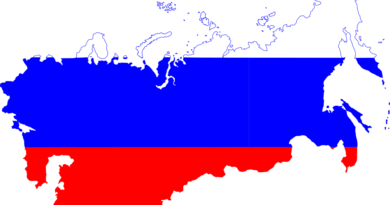Getting It Wrong on Ukraine. Scott Ritter
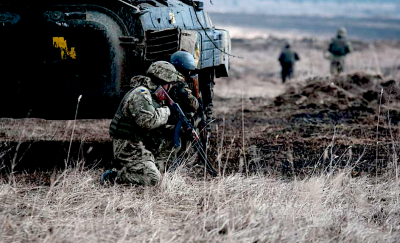
To receive Global Research’s Daily Newsletter (selected articles), click here.
Follow us on Instagram and Twitter and subscribe to our Telegram Channel. Feel free to repost and share widely Global Research articles.
***
Six months into Russia’s “Special Military Operation,” fact-challenged reporting that constitutes Western media’s approach to covering the conflict in Ukraine has become apparent to any discerning audience. Less understood is why anyone would sacrifice their integrity to participate in such a travesty. The story of William Arkin is a case in point.
On March 30 (a little more than a month into the war), Arkin penned an article which began with the following sentence: “Russia’s armed forces are reaching a state of exhaustion, stalemated on the battlefield and unable to make additional gains, while Ukraine is slowly pushing them back, continuing to inflict destruction on the invaders.”
Arkin went on to quote a “high-level officer of the Defense Intelligence Agency,” who spoke on condition of anonymity, who declared that “The war in Ukraine is over.”
Image: William Arkin in 2013. (C-Span still)
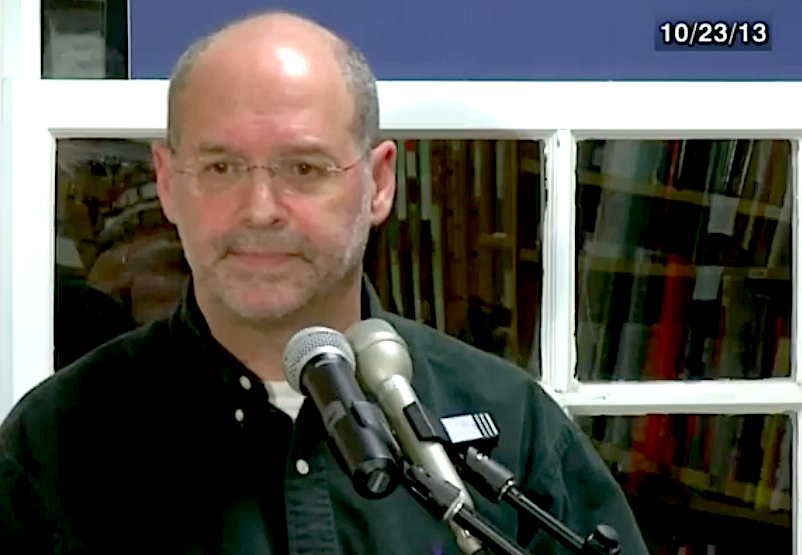
A little less than three months later, on June 14, Arkin wrote a piece for Newsweek with the headline: “Russia Is Losing the Ukraine War. Don’t Be Fooled by What Happened in Severodonetsk.”
Apparently neither Arkin nor his editorial bosses at Newsweek felt any need to explain how Russia could be losing the war twice.
Anyone who has been following what I’ve been writing and saying since the beginning of Russia’s “Special Military Operation” in Ukraine knows I hold the exact opposite view. Russia, I maintain, is winning the Ukraine conflict, in decisive fashion.
But I don’t write for Newsweek.
William Arkin does.
Arkin proclaims that Russia is losing though it had, at the time the article was published, just taken the strategic city of Severdonetsk, killing and capturing thousands of Ukrainian forces, and rendering thousands more combat ineffective since they had to abandon their equipment to flee for their lives. (Russia has since captured all of the territory encompassing the Lugansk People’s Republic, including the city of Lysychansk, inflicting thousands of additional casualties on the Ukrainian military.)
“The Russian army’s so-called victory,” Arkin proclaimed at the time, “is the latest installment in its humiliating military display and comes with a crushing human cost.”
The humiliating display instead is Arkin’s lack of acumen in conducting an independent assessment of the military situation on the ground in Ukraine.
This was again reinforced last week when Arkin penned another article in which he helps disseminate the outlandish claims of his Pentagon sources.
“[F]rom late February through August, with only a moderate infusion of weapons from the West, some supportive declarations from Western leaders and a smattering of ‘We Stand with Ukraine’ signs on U.S. lawns,” Arkin writes, Ukraine has been able to “hold at bay the mighty Russian military,” something apparently none thought it could do.
Ignore the jaw-dropping contention by Arkin that the tens of billions of dollars in military assistance provided by the U.S. and its NATO and European allies constitutes but “a moderate infusion of weapons.” No, don’t ignore it — focus on it. This is the signature style of Arkin and his Pentagon handlers, a sort of Orwellian double-speak where one can rest assured whatever bold statement is made, the truth is the exact opposite.
Arkin quotes “U.S. intelligence officials who have been watching the war,” writing that “Russian troops have had to contend with bad battlefield leaders, inferior weapons and an unworkable supply chain.”
Anyone who has been tracking the events in Ukraine might have thought that this was the situation as it applies to the Ukrainian military. Not so, says Arkin and his source. Moreover, it is not Ukraine’s President Volodymyr Zelensky who has been interfering with his Ministry of Defense, but Russian President Vladimir Putin with his. These same Russian troops, Arkin declares, have “also been hobbled by Putin himself,” who has “ignored, overruled and fired his own generals.”
This is baseless fiction, written by a man who seems determined to cement himself in the annals of the Russian-Ukraine conflict as an unabashed Ukraine partisan and vehicle for Pentagon information warriors. Arkin’s narrative of the war to date is so far removed from the factual record it belongs in The Onion.
What Arkin writes cannot even be called propaganda, because for propaganda to be effective it needs to be both believable at the moment of consumption, and able to sustain a narrative over time. Arkin’s work fulfills neither criterion.
Image: Russian Defense Minister Sergey Shoigu and President Vladimir Putin at a parade in Saint-Petersburg, July 30, 2017. (Kremlin.ru, CC BY 4.0, Wikimedia Commons)
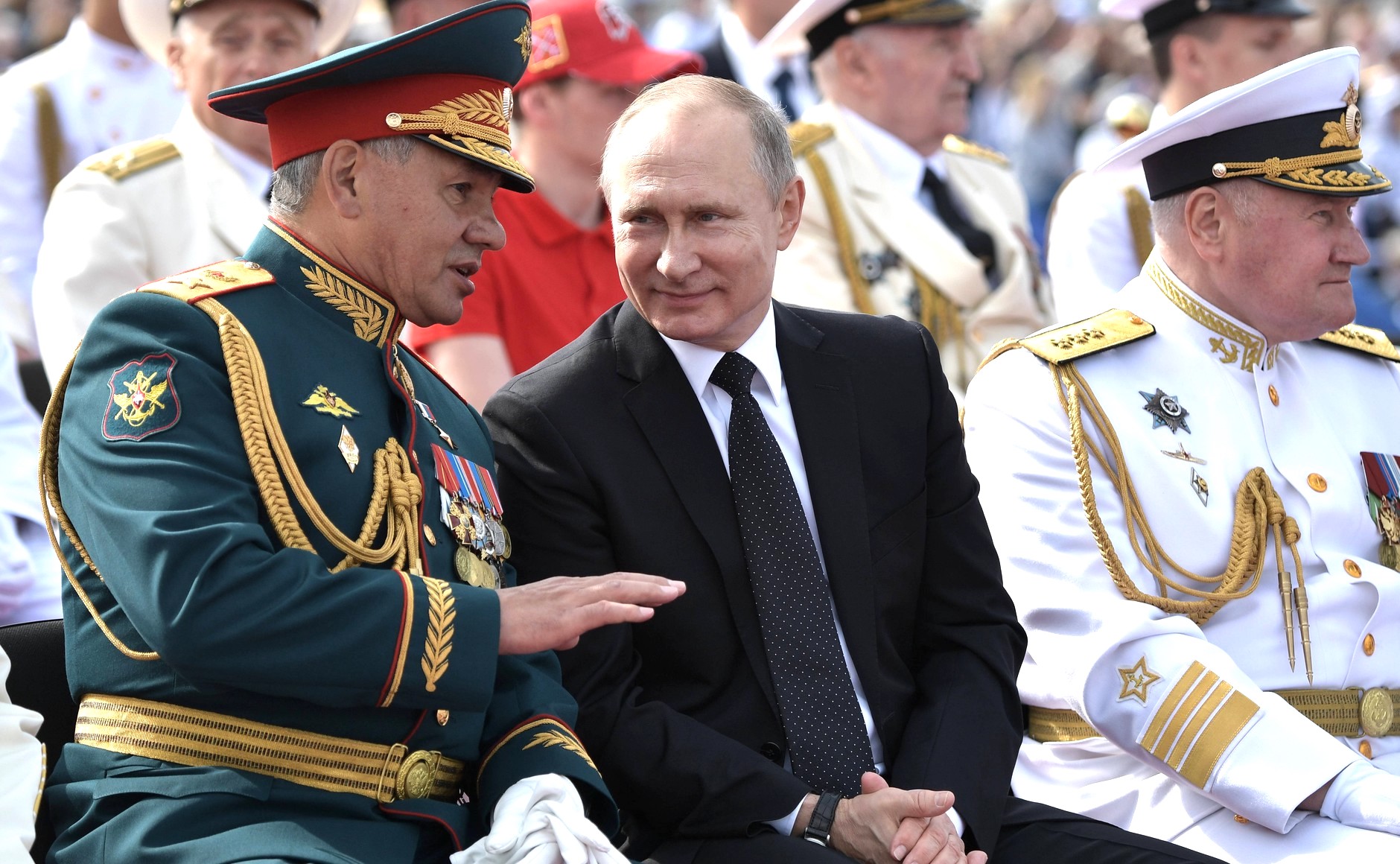
His Sources
Like most erstwhile journalists covering the conflict for western media outlets, Arkin appears to be a prisoner to his sources, which in this case are a combination of anonymous U.S. defense intelligence personnel and pro-Ukrainian propagandists.
I used the term “erstwhile” in describing Western journalists because normal journalistic standards dictate that one seeks to report a story — any story — from a position of dispassionate neutrality, drawing on sources which reflect all sides of the story.
There is nothing wrong about drawing conclusions from such reporting, even assigning weight when it comes to which aspects of the coverage are deemed more credible than others. But before such conclusions can be made, foundational reporting needs to take place. Simply parroting what you’re being told from sources exclusively drawn from one part of the story is stenography.
In the interests of full disclosure, Arkin and I were colleagues for a brief period in late 1998-early 1999, when we were both contracted to NBC News as “on air talent” to talk about the situation in Iraq. Arkin apparently did not hold my analysis in high regard then. I have no idea what he thinks today — Consortium News has reached out for an answer, but as of publication has not received a reply.
Arkin did not respond to an invitation to debate me on Ukraine on a weekly podcast I do with Jeff Norman.
I’ll let our respective track records speak for themselves, especially when it comes to Iraq and the threat posed by weapons of mass destruction. Arkin says he is “proud to say that I also was one of the few to report that there weren’t any WMD in Iraq and remember fondly presenting that conclusion to an incredulous NBC editorial board.”
I’m pretty sure I was saying something similar to an equally incredulous Congress and to the entire mainstream U.S. media (NBC included), as well as the international press corps.
Congratulations, Bill — we once were on the same page.
But no more.
Arkin’s Achievements
Arkin is no run-of-the mill journalist. He’s a smart guy. He got accepted to New York University, although he dropped out to join the Army, claiming NYU “wasn’t for me.” While stationed in Berlin, he completed his undergraduate studies, getting a bachelor’s degree in government and politics. After leaving the Army he got a master’s degree in National Security Studies from Georgetown University.
For the next 40 years, Arkin worked for numerous employers, specializing in nuclear issues and military affairs, before landing his current gig as Newsweeks‘ senior editor for intelligence.
For The Washington Post in 2010, after a two-year investigation, he wrote a ground-breaking story with Dana Priest about the vast and until then little-understood explosive growth of the national security state post 9/11.
Arkin then showed integrity when he resigned from MSNBC and NBC News in 2019. His reasons for leaving, spelled out here, include how he was “especially disheartened to watch NBC and much of the rest of the news media somehow become a defender of Washington and the system.”
In March this year he wrote a startling story that questioned the dominant Western reporting that Russia was committing repeated war crimes by wantonly slaughtering huge numbers of civilians just for the hell of it.
“As destructive as the Ukraine war is, Russia is causing less damage and killing fewer civilians than it could, U.S. intelligence experts say. Russia’s conduct in the brutal war tells a different story than the widely accepted view that Vladimir Putin is intent on demolishing Ukraine and inflicting maximum civilian damage,” he wrote.
The article corroborated what Russia had been saying all along, which until that point was dismissed in the West as propaganda.
So how does Arkin transition from debunking Ukrainian and Western propaganda about Moscow deliberately killing huge numbers of civilians, to embracing the fanciful notion that Russia is losing the war? (Further underscoring Arkin’s assessment of Russia’s battlefield performance is the uninterrupted string of battlefield successes by Russia in the Donbass since that June article was published, further undermining his argument.)
It’s not a lack of education that has led Arkin down the path so many of his colleagues in mainstream media have stumbled down; there is no doubting the man is not only well educated, but also innately intelligent, something that doesn’t necessarily follow the other.
Military ‘Expertise’
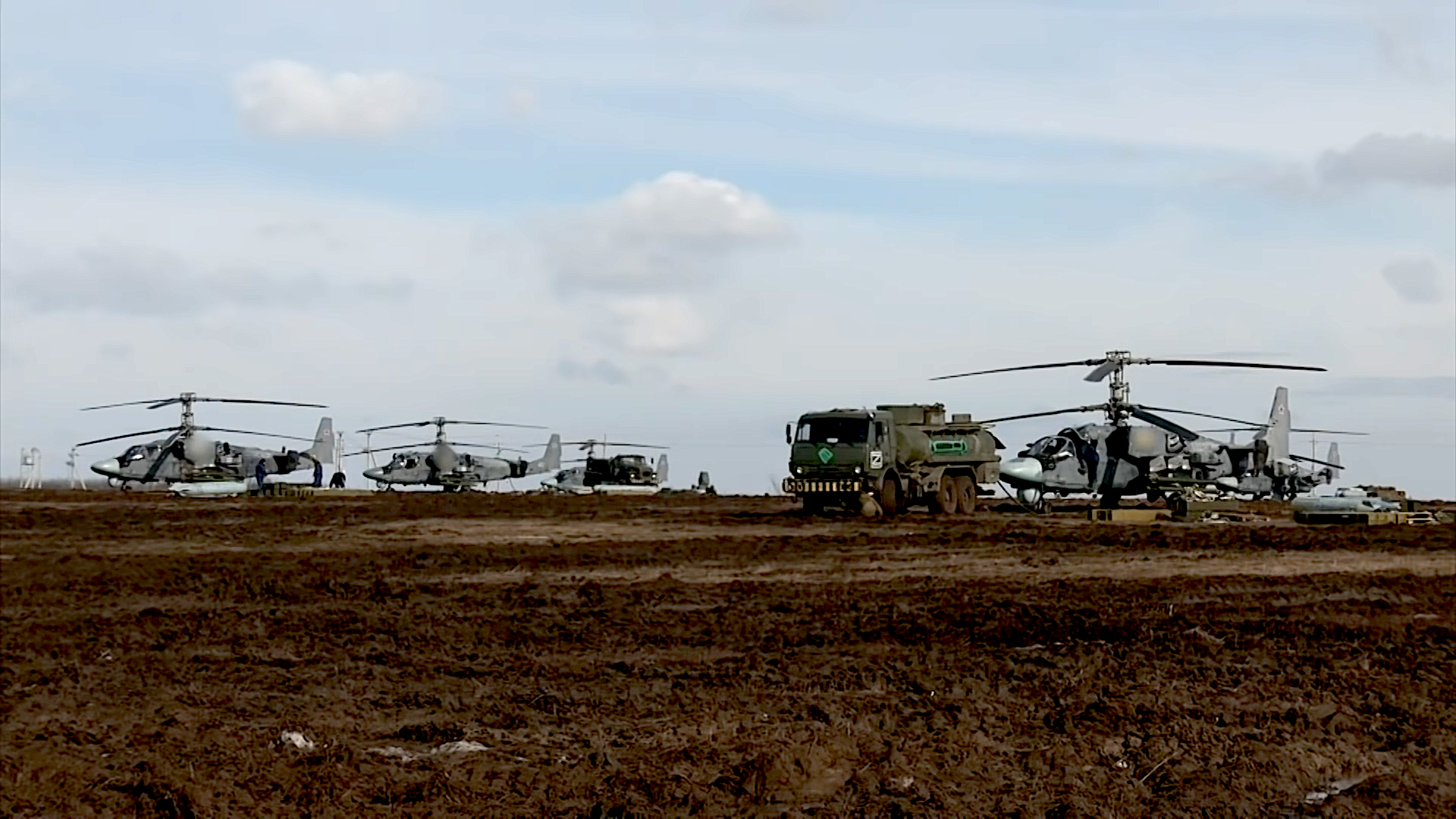
Russian helicopters in a field during the invasion of Ukraine, March 2022. (Mil.ru, CC BY 4.0, Wikimedia Commons)
Arkin can be said to be a victim of his own CV, which is light on relevant military experience for someone selling himself as an expert in military affairs based on his time in the U.S. Army.
Arkin purports to be one of the foremost military analysts of our times, a man whose track record in military affairs dates to his time as a junior enlisted soldier in the U.S. Army where, from 1974 to 1978, he served in occupied West Berlin as an intelligence analyst working for the Deputy Chief of Staff Intelligence (DCSI), U.S. Commander Berlin (USCOB).
On his WordPress page, Arkin writes that in the army he “rose to be senior intelligence analyst for the Berlin military occupation authorities and served under civilian cover as part of a number of clandestine human and technical intelligence collection efforts.”
In Berlin, Arkin adds in his LinkIn bio, “I worked on a number of clandestine projects and was an analyst of Soviet and East German activities in East Germany.”

Alexanderplatz in Berlin, 1978. (Bundesarchiv, CC-BY-SA 3.0, Wikimedia Commons)
He was not just any military analyst, mind you, but someone who, according to himself, “was once one of the world’s leading experts on two military forces that don’t even exist anymore.” I worked closely with military officers who were in fact the foremost experts on both the Soviet and East German militaries during the time Arkin served. This Newsweek senior editor has engaged in more than a little self-promotion.
That someone of the rank of specialist or sergeant (I have no idea what rank Arkin achieved, but four years’ time in service is a self-limiting reality when it comes to advancement) being the “senior intelligence analyst” in all of Berlin on matters pertaining to the Soviet military is patently absurd; Berlin was home to numerous specialized intelligence units and organizations, any one of which would have been staffed with personnel far more senior and, as such, experienced, in intelligence analysis on the Soviet and East German target than Arkin. Simply put, Arkin was not, nor has he ever been, one of the world’s leading experts on the Soviet military.
Not even close.
Arkin was never involved in combat arms, nor did he serve in combat. Without that experience he cannot understand the military realities of war — logistics, communications, maneuvering, fire support, etc. Berlin was, from everything I’ve heard, a fascinating place to serve — but it wasn’t combat.
Not even close.
As Arkin has no combat experience, his military analysis is held hostage to his sources within the Defense Intelligence Agency who pass along such cutting-edge insights as the notion that Russia is suffering ten casualties for every Ukrainian soldier lost since the Donbass offensive began in April.
Arkin seemed unaware of documents alleged to have been leaked from the Ukrainian Ministry of Defense, dated April 21, which state that Ukraine had, as of the date, suffered 191,000 combined killed and wounded. According to Arkin’s math, this would mean Russia has suffered nearly 2 million casualties of its own.
Despite the absurdity, Arkin keeps parroting what his Defense Intelligence Agency sources tell him.

Defense Intelligence Agency headquarters viewed from the Potomac water taxi in 2019. (Antony-22, CC BY-SA 4.0, Wikimedia Commons)
He repeats, without hesitation, his intelligence source’s assessment of Ukraine’s “greater morale and motivation, better training and leadership, superior knowledge and use of the terrain, better maintained and more reliable equipment, and even greater accuracy.”
It doesn’t matter that literally every assertion made by Arkin’s intelligence source is demonstrably false. If Arkin knew about artillery (the ongoing conflict between Russia and Ukraine is primarily an extended artillery duel), he would understand the concepts of probability of hit and probability of kill, and how the volume of artillery fired increases both.
He might then understand how absurd it is to think that an artillery duel where one side fires 6,000 rounds and the other 60,000 rounds could produce an outcome where the side firing 10 times fewer rounds achieves a 10-fold advantage in lethality.
Any expert on Soviet/Russian military affairs would have known that artillery was going to be a major factor in any large-scale combat operation involving Russian forces. By way of example, three days before the Russian operation began, I tweeted (when I could still tweet):
“If you haven’t done a schedule of fires for at least three artillery battalions in the field using live rounds while maneuvering, I’m probably not interested in your military opinion about Ukraine.”
Arkin, to the best of my knowledge, has never done a schedule of fires for multiple battalions of artillery. His apparent lack of knowledge of artillery shows when he repeats verbatim the dreck fed him by his intelligence sources.
Arkin’s has to be aware that NBC News reported about the deliberate declassification and release by the U.S. intelligence community of intelligence information that intelligence officials knew was not true. And yet, Arkin still relies on these types of sources to provide the fodder for his headline-grabbing tales. The question of Arkin’s motives in writing such stories now remains.
That someone with Arkin’s background would allow a lifetime of diligent work to be squandered by serving as little more than a shill for U.S. intelligence is one thing. That media outlets like Newsweekkeep printing it is another. Together, these twin phenomena represent what I call “The Arkin Effect,” which is nothing less than the total debasement of journalism in the U.S. when it comes to Russia’s war in Ukraine.
Six months into Russia’s “Special Military Operation”, most military analysts admit that Russia enjoys the upper hand on the battlefield, despite the billions of dollars in military aid that has been sent to Ukraine by the U.S. and its European allies.
But not Bill Arkin and his employers at Newsweek. They seem to be content with serving as the Defense Intelligence Agency’s stenographers, putting out stories which have not, and will not, stand the test of time.
*
Note to readers: Please click the share buttons above or below. Follow us on Instagram and Twitter and subscribe to our Telegram Channel. Feel free to repost and share widely Global Research articles.
Scott Ritter is a former U.S. Marine Corps intelligence officer who served in the former Soviet Union implementing arms control treaties, in the Persian Gulf during Operation Desert Storm and in Iraq overseeing the disarmament of WMD. His most recent book is Disarmament in the Time of Perestroika, published by Clarity Press.
Featured image: Ukrainian soldiers training at the Yavoriv Combat Training Center at the International Peacekeeping and Security Center, near Yavoriv, Ukraine, March 16, 2017. (Anthony Jones, Public Domain)

